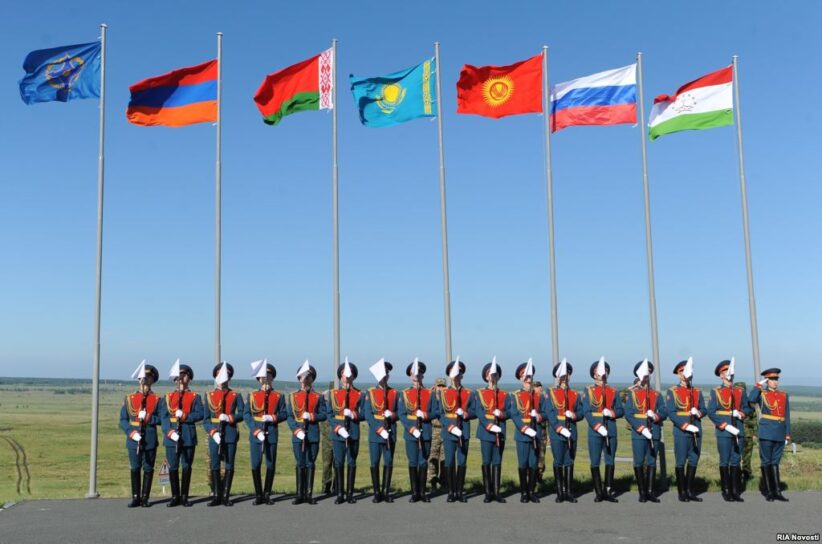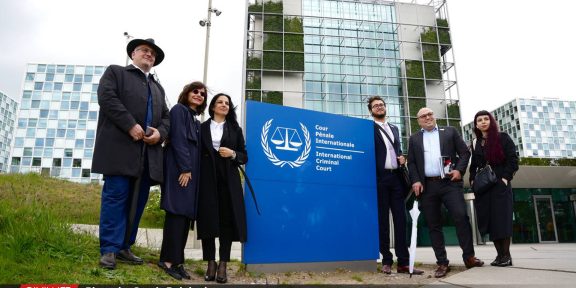By Mark Dovich
The incursions by Azerbaijani troops several kilometers deep into the Armenian regions of Syunik and Gegharkunik in May do not fall under the Collective Security Treaty Organization’s charter on collective defense, said CSTO General Secretary Stanislav Zas on Saturday. The determination effectively means that the CSTO, of which Armenia is a founding member, would not intervene were similar incidents to occur in the future.
“We must understand that the potential of the CSTO is activated only in the event of aggression or attack. Here we are dealing, in fact, with a border incident,” Zas said at a news conference in Moscow. “This is a border incident, and it must be resolved. And we are for resolving it peacefully,” he added.
The CSTO is a military alliance founded in 1994 among Russia, Armenia, and four other post-Soviet states: Belarus, Kazakhstan, Kyrgyzstan, and Tajikistan. Article 2 of the CSTO founding treaty commits signatories to “immediately launch the mechanism of joint consultations” when a member state is faced with a “menace to safety, stability, territorial integrity and sovereignty.”
Speaking to journalists, Zas added that the CSTO is closely monitoring the situation along Armenia’s eastern border, even though “the decision to form a monitoring group was not taken.” Zas also confirmed that he is in close contact with both the Armenian Foreign Ministry and the Defense Ministry.
The CSTO previously discussed the incursions at a foreign ministers’ council meeting in mid-May in Dushanbe, the capital of Tajikistan. At the meeting, Russian Foreign Minister Sergey Lavrov proposed establishing a joint Armenian-Azerbaijani commission to delimit and demarcate the border, possibly with Russian participation as a consultant or mediator. In response, Armen Grigoryan, the head of Armenia’s Security Council, stated that “before starting demarcation work, Azerbaijani forces must leave the territory of the Republic of Armenia.”
The border between Armenia and Azerbaijan officially remains undelimited and undemarcated, as does the Armenia-Georgia border. Delimitation refers to the process by which a border is legally defined, while demarcation refers to the process of physically marking a border, such as by building a fence or wall, according to the OSCE.
In an interview with EVN Report, Nerses Kopalyan, an Assistant Professor-in-Residence of Political Science at the University of Nevada in Las Vegas, said that the CSTO’s inaction over the incursions highlights Armenia’s failure to develop strong bilateral ties with other countries.
“Whereas Azerbaijan has developed close bilateral relations with several CSTO members, Armenia has relied on the multilateral platform of the security organization,” he said. “As has been observed, closer bilateral relations ended up superseding the collective, multilateral obligations that Armenia presumed the CSTO will fulfill.”
Since the incursions in May, at least one Armenian soldier has been killed, nearly a dozen injured, and six captured in further border incidents.
















